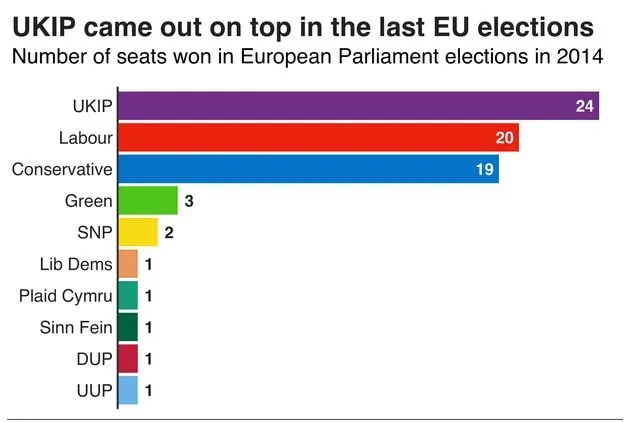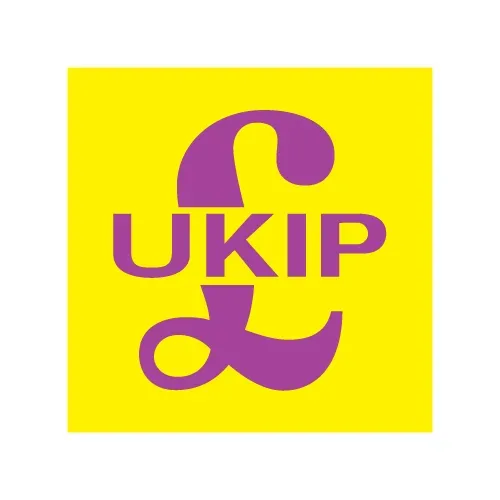
It appears that the European Commission are somewhat concerned that collusion between the EU and the UK government may see a purple wave surging across the channel (UKIP) not to mention, other Euro-sceptics if the United Kingdom is required to take part in European parliamentary elections in just a few months time.
With the rise in Euroscepticism all across Europe with the rise of nationally focussed, populist parties and the European Commission are deeply concerned. Not about the issues affecting the population of Europe driving this surge. Of course not. However, the threat to power has been understood, if not well received.
It seems, the peasants are revolting, and starting to object to ever increasing taxation, austerity and the effects of policy made at EU level, upon their own day to day life. The unfortunate aspect of democracy is that, in a healthy democracy, is that those within it, can dissent. Something already difficult in some European countries where protestors are maimed and killed by their own state security services.
An outcome which seemed unthinkable almost 3 years ago is now looking extremely likely. It is likely that European elections would HAVE to be fought and it is the consequences of this, on top of the rise of other Eurosceptic parties, which has the EU concerned. Several prominent leaders have been quick to talk of ‘measures to stop Brexiteer’s causing chaos within the EU’.
The implication is clear and should send a shiver up the spine of all EU citizens. This is an opportunity for another step towards an overtly ‘post democratic’ Europe.
It is hard to come up with any possible measures which they may be considering would not take away the democratic rights of MEP’s. Potentially to limit their speech, prevent their voting on certain issues and effectively create a second class MEP which has even less powers than they do today, if applied to British MEP’s only. Clearly, extremely prejudicial if applied to Britain alone and so visibly anti democratic that it would likely drive a big shift in the UK with more people than ever flocking to what is already the UK’s most popular option. ie. To leave the EU with no deal.
Or, will rules to even further limit the powers of ALL MEP’s be passed to apply to everyone avoiding completely alienating the UK and perhaps solving a problem which the European Commission is trying to deal with. ie. The problem of democracy getting in the way of unchallenged power entirely. This has to be a tempting opportunity to further entrench power and address the problem of increasing numbers of Euro sceptics in Brussels.
The European Commission is probably right to be afraid that the makeup of the European parliament is changing and that change is accelerating. The makeup of the UK membership is likely to change more quickly yet. So perhaps it isn’t surprising to hear EU leaders begin to talk about the need to prevent ‘Eurosceptics causing chaos for the EU’. Where ‘chaos’ actually means, ”democracy” . European Union ideologues in Brussels working feverishly towards a ”post democratic” Europe, are unlikely to stand by and let such a potential obstacle to their attempt to secure unchallenged power, come to pass without a fight?
As with so many other things, Brexit is the catalyst for confronting an existing systemic issue with more urgency, in Brussels, as much as it has been in the UK. Clearly demonstrating that there is a tendency to lose rights and representation under the EU, was the very reason many voted against EU membership. Little did they realise how little regard for their democratic rights exists among UK politicians. That sense of betrayal and a general realisation among the population concerning the state to which democracy has been compromised and how little their elected representives really reflect their views has the potential for a paradigm shift in UK politics. However, the first opportunity for voters to express their anger at losing what they voted for, or simply, their anger at the political class showing that democracy actually means very little. Weighting their 650 votes as far more weighty than those of the entire electorate from which they derive that power. This all comes as polls are showing the largest majority in terms of any Brexit outcome is now very clearly, to leave the EU with no deal, rather than under the presently proposed treaty. The democratic deficit cannot be overstated. Can a country in which the majority of citizens say they are no longer represented in parliament, call itself democratic?

The UK Independence Party: Set to be the beneficiaries of UK Government’s failure to respect voters
The single most popular party represented in the European parliament from the UK, is not labour or the conservatives, is highly Eurosceptic party, UKIP. The numbers of seats held by UKIP is set to surge. A figure that might reasonably have been expected to increase somewhat anyway due to public dissatisfaction concerning the behaviour of the EU following the UK referendum is likely to be boosted further as a result of the geopolitical trend towards Nationalist populism which is sweeping western nations. However, the Labour and Conservative betrayal of the fundamental principles of democracy resulting in a further extension leading to the next European elections are set to result in a seismic earthquake in British politics. The first tremors of which, are expected to manifest themselves in the event of UK participation in European Election.
The shift towards a more nationalist, populism has commonly been linked to the backlash against globalism manifesting in unaccountable and democratically deficit supra national organisations. The trend demonstrates a resistance among people, many of whom, are struggling to maintain their standard of living under increasing taxation as they are forced to pay for the ideological pet projects of a small, powerful group. A group of people, which in most cases, they would not chose to rule over them, despite the fact they are forced to live with the results of the decisions they make on their behalf. Immigration is of course at the forefront of many of these concerns, and is the one which was, for a time, most discussed in the media. However, it should be noted that this issue goes far beyond being about any single issue in the minds of the majority of the public, if polls are to be believed.
As the populations of Europe change direction in favour of parties that they feel represent their interests over those of globalists and their apparatus, the EU is considering measures to ensure that dissenting MEP’s can do even less than they can today. The last thing wanted by EU leaders is a wave of committed sceptics which truly represent the concerns and interests of citizens of their country.
Meanwhile, as demonstrated so clearly in yet another EU member’s national elections, anti globalist, nationalism continues to spread throughout the EU. Estonia seems to be showing a strong shift to the right with the Estonian Conservative People’s Party (known as the EKRE) showing doubling in the number of votes in Estonia since 2015, to reach 17.8%. The centre right reform party were the strongest performer of the night displacing the formerly leading party with 29.%. The Reform party must now negotiate with another party to form a coalition government.
Is there enough democracy left in Europe that will this trend continue and return democratic control to the population of member nations? It seems there is a growing realisation by citizens of EU member states, that they need to act to protect democracy, before it is gone forever.
